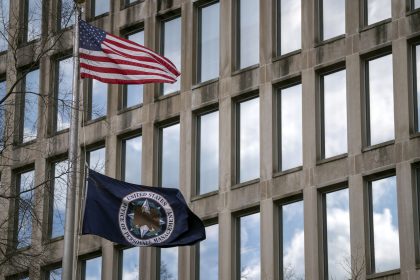Labor Dept. Sets Limits on Tipped Employees Performing Non-Tipped Work

WASHINGTON — On Tuesday the Department of Labor set new limits on the amount of time employers can use tipped-employees to do non-tip-producing work.
The new ruling, implemented at a time of nation-wide labor shortages, comes via a clarification of language in the Fair Labor Standards Act and seeks to prevent business owners from claiming tip credit on employees asked to do non-tip producing work for any substantial length of time.
“Today’s final rule enhances protections for this vital segment of the nation’s essential workforce, and combats income disparity and promotes equity,” Jessica Looman, Wage and Hour Division acting administrator, said in an official statement.
These new clarifications help expand the definitions of tip-producing and tip-supporting roles within the federal Tip Credit system. This Tip Credit program, which allows employers to legally pay employees less than the federal minimum wage if they can prove the employee makes up that wage in tips, will now require tipped workers to spend no more than 20% of their workweek, or 30 consecutive minutes, doing non-tip-producing or tip-supporting labor.
The Department of Labor hailed the new regulatory amendment as a wide-reaching act of equity for women, people of color and immigrants, who, according to the department, make up more than half of all tipped workers.
The regulatory change is the subject of the recent lawsuit by the Restaurant Law Center and the Texas Restaurant Association against the Biden administration.
The lawsuit alleges the new measure is an unnecessary addition to an already clear workforce law, that it is not within the legislative power of the Department of Labor to enact, and that it would be harmful for small businesses still recovering from the pandemic.
“The administration’s attempt to improperly use the regulatory process to legislate changes to the ‘Tip Credit’ would severely impact operators who are currently focused on labor and supply chain shortages and working to keep their doors open after an economically devastating pandemic,” Angelo I. Amador, executive director of the Restaurant Law Center, said in an official statement. “As we have previously stated, this is an arbitrary change that only creates confusion and enormous compliance challenges for restaurants.”
Brooke Riley, an Oklahoma based bartender and nine year veteran of tipped-positions in the restaurant business, thinks the new regulation is a great idea. She estimates she has been losing about $100 a paycheck due to non-tip related duties she is asked to do during her shift.
“This is something that you have to do to be a server,” Riley said. “Say you are on a six hour lunch shift, you may work for two hours, then you are cut, and there’s a possibility you could spend the next two to three hours doing cut work … things like rolling silverware, sweeping the backfloors, vacuuming, and cleaning the bathrooms.
“Sometimes, I would say you do it more than you serve — especially since COVID,” she continued.
With non-tip-producing labor so common within food, beverage and service industries, some small business owners question how the Department of Labor will enforce the new regulation.
“How are they going to do that?” Nina Hartnett, the 33-year-owner of Mane Obsession hair salon in Mesa, Arizona, asked when told about the new ruling. “Are you going to click into a special program that says, ‘Now I’m taking out the trash?’ and then click back in? I don’t know how they are going to regulate that — I think people are going to lie.”























